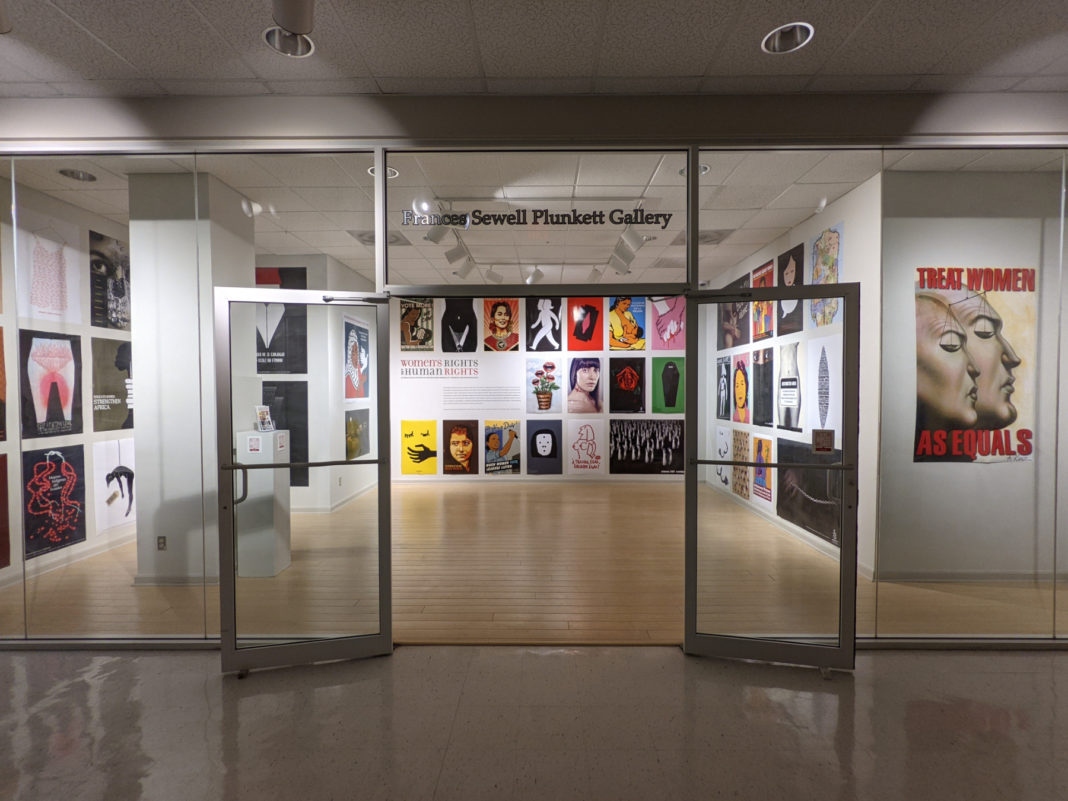The graphic design exhibit, “Women’s Rights Are Human Rights,” is on display until Jan. 20 at the Plunkett Gallery in Hardman Fine Arts Hall on Mercer University’s Macon campus.
The exhibit, which highlights social justice issues surrounding gender-based violence, discrimination and inequality, includes 50 posters from the original 100-piece collection, curated and organized by Elizabeth Resnick, professor emerita at Massachusetts College of Art and Design.
“This exhibition features posters created by both men and women to celebrate and acknowledge the vital role that all citizens should play in protecting and promoting human rights while actively challenging gender inequality and stereotypes, advancing sexual and reproductive rights, and protecting women and girls against brutality,” Resnick wrote in her curator’s statement about the collection.
Tennille Shuster, associate professor and director of graphic design in the College of Liberal Arts and Sciences, brought the exhibit to Mercer.
The exhibit, which features posters designed by artists from more than 20 countries, is an example of art’s impact and role in social justice movements, she said
“There’s just a long history of graphic designers utilizing their skills of combining type and image in really impactful ways to contribute to social initiatives that create meaningful impact in our society,” Shuster said. “This exhibit continues that tradition in a time when women are being stripped of their rights, and injustices on women are being carried out worldwide. … These poster designs provide a succinct and powerful vehicle to educate the Mercer and wider Macon communities on these important issues.”
Mercer’s graphic design program teaches students how to combine type and images to create an impactful message that promotes a call to action. Starting in their first graphic design class, students learn about the power of visual metaphor to communicate an image in an unexpected and impactful way “that will leave the viewer feeling like they’ve just seen something that they’ve never seen before,” Shuster said.
“That type of impact is lasting, right?” she said. “It sticks with you, whether it’s a little jarring, like some of these posters are in some ways or even upsetting to look at. But the idea is that it stays on your mind, and it hopefully will move you to do something as that call to action.”
Shuster said she hopes the message of the “Women’s Rights Are Human Rights” exhibit has a real impact on people’s lives.
A panel discussion of professors around the message of the posters is currently in the works. Some women’s and gender studies and sociology classes have brought groups over to observe the art, and Shuster encourages more people to come by.
“If anybody wants to run programming around it, or bring in classes or student groups, we’re happy to accommodate any of those types of requests,” she said.
Feature photo by Craig Coleman










